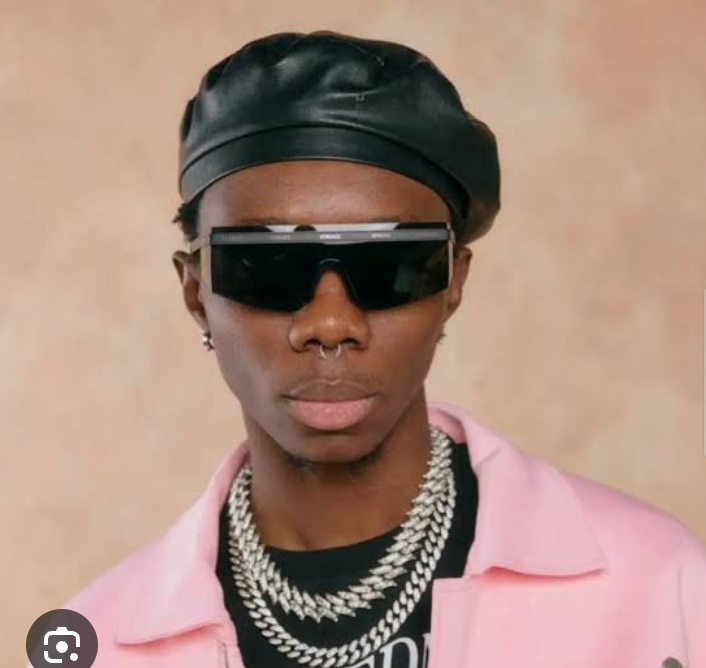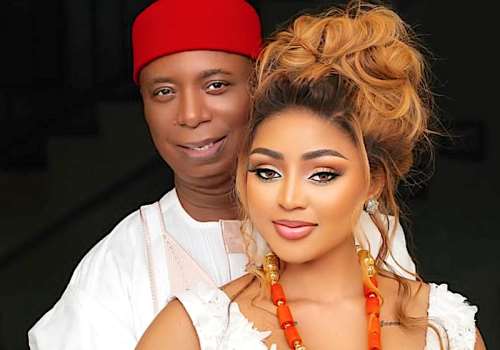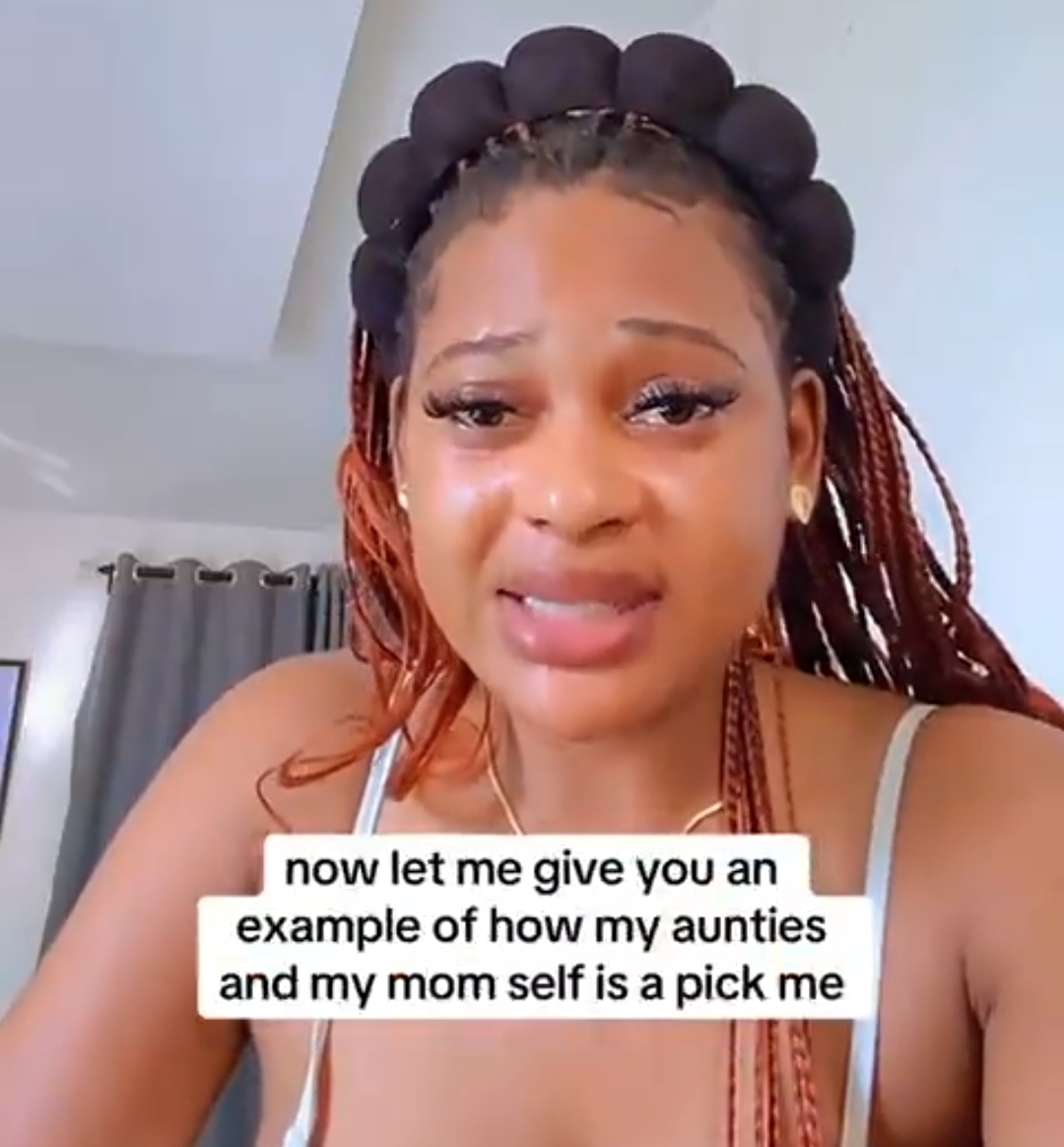
From Preaching Consent to Facing a Lawsuit: Ironic Fall of Blaqbonez

The Blaqbonez lawsuit is the perfect example of how fast tables can turn. One minute you’re the loudest voice in the room preaching consent and respect for women in your lyrics, and the next minute you’re trending online for all the wrong reasons — harassment, cyberstalking, and invasion of privacy. The irony would be funny if it wasn’t so deeply disturbing.
In a dramatic twist that has sent shockwaves through Nigeria’s entertainment industry, rapper Emeka Akumefule, popularly known as Blaqbonez, finds himself at the center of a legal firestorm following a series of petitions and official statements accusing him of gross misconduct, emotional abuse, and privacy invasion. What started as a private matter has exploded into a public scandal after multiple legal documents surfaced online, showing that the musician has been accused of engaging in a pattern of harassment and cyberstalking against a woman identified as “Jane Doe.”
The first document, dated December 30, 2024, from TIA Solicitors, was addressed to the Divisional Police Officer of the Nigerian Police Force, Ogombo Division, Lagos State. The petition accused Blaqbonez of “breach/invasion of privacy, intentional transmission of offensive, indecent, or obscene content, and cyberstalking leading to intentional infliction of emotional distress.” The letter detailed how, after the woman allegedly declined his romantic advances, Blaqbonez resorted to blackmail, online harassment, and public humiliation. According to the petition, he went as far as recording and circulating private video content of the woman in her underwear, an act described as reckless, malicious, and abusive.
The petition stated that despite several cautions and requests to stop, Blaqbonez continued to invade the victim’s privacy, allegedly even reaching out to her boyfriend to spread false narratives about being “friends with benefits.” This calculated move, the lawyers claimed, was meant to humiliate and damage the woman’s reputation. The document further alleged that videos showing the woman in her underwear had been widely circulated on social media platforms, including WhatsApp, causing her severe emotional and mental distress.
TIA Solicitors didn’t stop there. On January 8, 2025, they sent a follow-up letter directly to Blaqbonez, demanding that he delete all personal data and video content belonging to their client and issue an unreserved public apology within seven days. They also demanded compensation of ₦30 million for damages and legal fees. The letter warned that failure to comply could result in legal action seeking ₦200 million in punitive damages, as well as public disclosure of his alleged misconduct to media outlets and music platforms.
The letter, signed by Noel Arthur, Managing Partner of TIA Solicitors, also included a stern warning about potential legal consequences under Nigeria’s Cybercrimes (Prohibition, Prevention, etc.) Act of 2015 and Section 218 of the Criminal Code, both of which criminalize the non-consensual sharing of private or intimate content. The legal firm described Blaqbonez’s actions as a “reckless disregard for the law and the fundamental rights of privacy,” adding that such behavior could not go unchecked in a society where artists often wield significant influence over impressionable audiences.
Fast forward to October 25, 2025 — nearly ten months later — another law firm, Bristol & Mortglass C.S., representing the same woman, released a public statement on her behalf. The statement confirmed that despite multiple petitions and legal warnings, the harassment had continued. The firm, through attorney Taiwo Akinsulie, accused Blaqbonez of intensifying his harassment campaign by engaging in blackmail, threats, and further cyberstalking. According to the statement, these actions have left their client suffering from “immense mental, psychological, and emotional trauma.”
The statement painted a grim picture of the ordeal, claiming that Jane Doe has been living in fear for her safety in Lagos due to the nature of some of the alleged threats. It also highlighted the social and emotional fallout she has faced, including public ridicule and damage to her reputation. The legal team invoked three major Nigerian laws — the Cybercrimes Act of 2015, the Violence Against Persons (Prohibition) Act of 2015, and the Nigeria Data Protection Act of 2023 — to emphasize that Blaqbonez’s alleged conduct is a criminal violation on multiple fronts.
According to Bristol & Mortglass, the case has been officially reported to the Nigerian Police Force, and law enforcement has begun investigating. They confirmed that legal documents were served to Blaqbonez’s residence on at least two occasions, but the alleged harassment “persisted and worsened.” The firm concluded by expressing faith that the authorities would “act in accordance with the law and ensure justice is served.”
For a rapper who has built much of his public persona around progressive themes — championing body positivity, consent, and gender equality — these allegations strike at the very heart of his brand. Blaqbonez has often positioned himself as an outspoken advocate for women’s rights within Nigeria’s music industry, a stance that earned him admiration from fans who viewed him as refreshingly socially conscious. Yet, these recent revelations cast a long shadow over that reputation, raising uncomfortable questions about authenticity and hypocrisy in celebrity activism.
Social media reactions have been fierce and divided. While some fans insist on waiting for the full investigation before drawing conclusions, others have expressed outrage and disappointment. Many have pointed out the irony of a man who once urged men to “respect women and boundaries” now being accused of violating both. The phrase “practice what you preach” has been repeated countless times across platforms, reflecting the general mood of betrayal among fans who once viewed him as a role model.
Public figures in Nigeria are no strangers to scandal, but this case stands out because it combines elements of celebrity culture, cybercrime, and gender justice in a way that underscores how fragile reputations can be in the digital age. The same social media platforms that once amplified Blaqbonez’s career are now the battleground for his public reckoning. Every new development in the case sparks viral debates about accountability, consent, and the treatment of women — not just in entertainment but across Nigerian society.
As of now, there has been no official statement from Blaqbonez or his legal team addressing the allegations. His social media pages remain active but unusually quiet, as fans await his response or possible legal defense. Whether the rapper will choose to deny, settle, or counter the claims remains to be seen, but the damage to his public image has already begun to take root.
The unfolding scandal serves as a sobering reminder of how swiftly public perception can shift, especially in an era where screenshots, videos, and court documents can go viral within hours. Once celebrated as a voice for consent, Blaqbonez now stands accused of the very violations he once condemned. It is a cautionary tale — a brutal demonstration of how the same culture that builds celebrities can dismantle them overnight.
The irony isn’t lost on anyone. In the end, this case is no longer just about one artist or one woman. It’s about accountability in an industry that too often blurs the line between performance and personal conduct. If proven true, it will mark not just a personal downfall for Blaqbonez but a pivotal moment in Nigeria’s ongoing conversation about respect, privacy, and the power dynamics between fame and responsibility.


